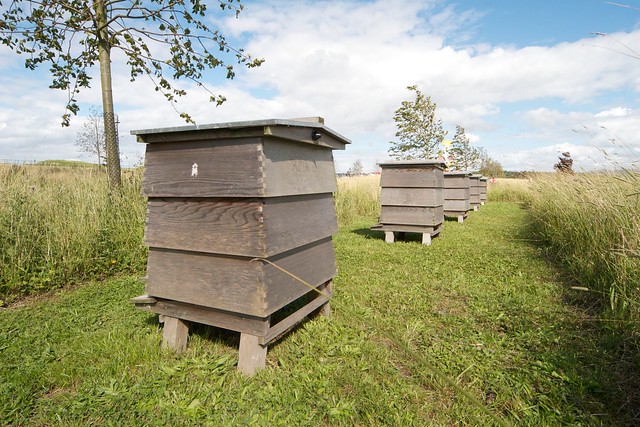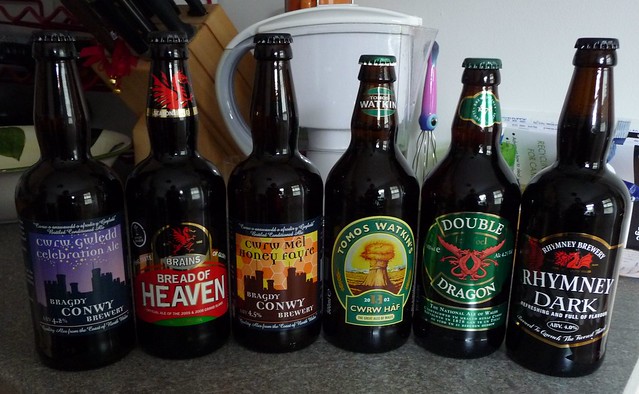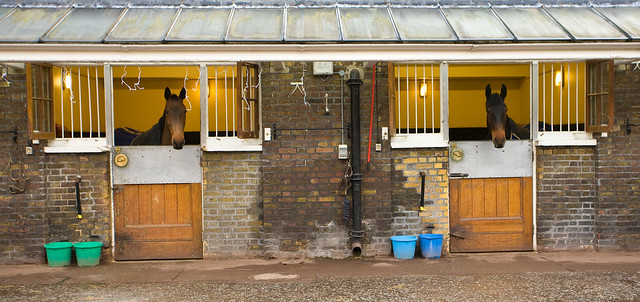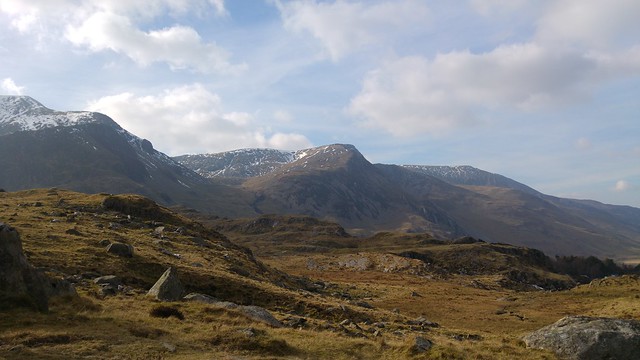Words for part, portion, piece, thing and related words in Celtic languages.
Words marked with a * are reconstructions.
| Proto-Celtic | *rannā = part |
|---|---|
| Old Irish (Goídelc) | rann = part (of a whole) randatu = the property of belonging to a part of speech rannaid = to divide (into parts), to apportion ranngabáil = participle |
| Middle Irish (Gaoidhealg) | rann, rand, ran, rán = part, lot, portion, faction, alliance |
| Irish (Gaeilge) | rann [ɾˠanˠ] = part, side (in dispute), partition rannach = apportioning, sharing, open-handed rannadóir = divider, sharer rannán = division rannóg = section rannpháirt = participation, part, share roinn = share, portion, distribution, dealing, trading, division |
| Scottish Gaelic (Gàidhlig) | rann [r̪ˠaun̪ˠ] = stanza, quatrain, verse, bond, deed, division, part, portion, section rann-phàirt = participation, portion, participle roinn [r̪ˠɤin̪ʲ / r̪ˠɤn̪ʲə] = dividing, partitioning, section, share, allotment, partition, department, division roinneadair = divider, divisor, sorter |
| Manx (Gaelg) | rheynn = divide, classify, distribute, dispense, share fo-rheynn = section so-rheynn = divisible |
| Proto-Brythonic | *rrann = part |
| Middle Welsh (Kymraec) | rann = part |
| Welsh (Cymraeg) | rhan [r̥an] = part (of something), portion, division, element, constituent, component rhanadwy = divisible, dividend rhanedig = shared (out), divided, parted, split, separate rhannu = to divide, separate, part, divide |
| Old Cornish | radn = part, portion |
| Cornish (Kernewek) | radn = lot, part, portion, role, share ranna = to share |
| Middle Breton (Brezonec) | rannaff = to share, separate, divide, pronounce, split |
| Breton (Brezhoneg) | rann [rãnː] = part, fraction, division, slot rannañ [ˈrã.nːã] = to share, separate, divide, pronounce, split ranned [ˈrã.nːet] = dividend ranngalon [ʁɑ̃nˈɡɑːlɔ̃n] = deep sorrow, desolation, heartbreak rann |
Etymology: from the Proto-Indo-European *per- (to sell) [source], which is also the root of such English words as depart, jeopardy, parcel, part, partition and portion [source].
| Proto-Celtic | *kʷezdis = piece, portion |
|---|---|
| Old Irish (Goídelc) | cuit [kudʲ] = part, portion, share cuit adaill, cuit adíll = a passing visit, a brief visit cuitigid = to share, partake |
| Middle Irish (Gaoidhealg) | cuit = share, part, portion cuit(gi)d = to share, partake, participate |
| Irish (Gaeilge) | cuid [kɪdʲ] = part (of whole), share, portion, some, cuideach = wealthy, prosperous cuideachta = company, companionship, social amusement, fun cuideachtaigh = to bring together, associate cuideachtúil = companionable, sociable cuideachtúlacht = sociableness cuidí = component cuidigh = to share, help, requite, repay (usually for misdeed), do for, do away with cuiditheoir = helper, supporter, seconder cuidiú = to help, assistance cuidiúil = helpful, cocky, conceited |
| Scottish Gaelic (Gàidhlig) | cuid [kudʲ] = portion, share, allotment, ration, effects, means, belongings, some (people), accommodation, victuals cuid-eigin [kudʲegʲɪn] = someone, somebody cuideachail [kudʲəxal] = helpful, constructive, subsidiary cuideachair [kudʲəxɛrʲ] = auxiliary, helper cuideachas [kudʲəxəs] = help, suppprt cuideachd [kudʲəxg] = company, society, throng, troop; also, too, jointly, together cuideachdadh [kudʲəxgəɣ] = accompanying cuideag [kudʲag] = small portion / share |
| Manx (Gaelg) | cooid = certain, some, stuff, assets, goods, helping, means, part, possessions, proportion, resources cooidjagh = accompanying, jointly, together, inclusive cooidjaghtagh = companion, companionable |
| Gaulish | *pettiā, = (?) |
| Pictish | *ᚚᚔᚈ (pit) = (a parcel of) land, a portion (?) – found in placenames like Pitlochry |
| Proto-Brythonic | *peθ = part |
| Old Welsh (Kembraec) | ped = thing, object |
| Middle Welsh (Kymraec) | peth = thing, object |
| Welsh (Cymraeg) | peth [peːθ] = thing, object, material, suff, substance, device, instrument, personal possessions, belongings, tools, equipment, something, anything peth(eu)ach = (unimportant) things, trifles pethdod = thingness, thinghood, reality, substantiality petheiddio = to reify, make real or concrete |
| Middle Cornish (Cernewec) | peth, pêth, peyth, pŷth = thing, something, article pethow = things, riches, wealth |
| Cornish (Kernewek) | pyth, peth [pɪːθ / pɛθ] = commodity, material, matter, possession, property, thing, that which, what, appliance pyth ha da, peth ha da = possessions pythek, pethek = concrete pythow, pethow = belongings, wealth |
| Middle Breton (Brezonec) | pez, pezz = piece, bit, part |
| Breton (Brezhoneg) | pezh [peːs] = piece, bit, room, part, what pezhiad = (big) piece, piece (of) pezhig = (an) ugly piece |
Etymology: unknown, possibly borrowed from a non-Indo-European substrate source [source]. Words from the same roots via Gaulish *pettyā and Latin pettia (piece, portion), include piece in English, pièce (room, patch, piece, play, document) in French, peza (piece, fragment, part) in Galician, pieze (piece, part) in Spanish, biisi (song) in Finnish, and ピース (pīsu – piece) in Japanese [source].
| Middle Irish (Gaoidhealg) | písa, pissa = piece, fragment, coin |
|---|---|
| Irish (Gaeilge) | piosa [ˈpʲiːsˠə] = piece, bit, patch, piece-work, literary or musical composition, coin piosaáil = to piece together, patch |
| Scottish Gaelic (Gàidhlig) | pìos [piːs] = bit, piece, sandwich, piece, (musical) composition, hunk (person) pìosach [piːsəx] = in pieces / fragments pìosail [piːsal] = sexy, attractive pìosan [piːsan] = small piece / bit |
| Manx (Gaelg) | peesh = bit, cutting, patch, piece, length (of thread), parcel |
| Cornish (Kernewek) | pis = piece |
Etymology: from Middle English pece (piece, morsel, bit), from Anglo-Norman piece (piece, bit, part), from Late Latin petttia (piece, portion), from Gaulish *pettyā, from Proto-Celtic *kʷezdis (piece, portion) – see above [source].
| Proto-Celtic | *darnos, *darnā = piece, part |
|---|---|
| Old Irish (Goídelc) | drécht [dʲrʲeːxt] = portion, part |
| Middle Irish (Gaoidhealg) | drecht, drécht = part, portion, section; poem, literary composition dréchtach = numerous; skilled in song or poetry dréchtfaid = to divide up |
| Irish (Gaeilge) | dréacht [dʲɾʲeːxt̪ˠ]= part, portion, draft, detachment, number; (literary) piece, composition; draft dréachtach = composer, poet; skilled in/diligent at compostion dréachtaigh = to draft dréachtín = versicle, stanza dréachtóir = drafter, draughtsman (of documents) |
| Scottish Gaelic (Gàidhlig) | dreachd [drɛxg] = draft dreachd-aithisge = draft report dreachd-dhealbh = working drawing |
| Manx (Gaelg) | draght, dreaght = draft draghtey = to draw up dreaght feeleeaght = a piece of poetry |
| Gaulish | *darnā = piece |
| Proto-Brythonic | *darn = piece (?) |
| Middle Welsh (Kymraec) | darn = piece, fragment, part darnaw, darnio, darnu = to break or tear in pieces |
| Welsh (Cymraeg) | darn [darn] = piece, fragment, part, coin, passage darn(i), darnu = to break or tear in pieces darn(i)edig = broken or torn to pieces darniog = broken, shattered, fragmentary |
| Middle Cornish (Cernewec) | darn = fragment, piece pethow = things, riches, wealth |
| Cornish (Kernewek) | darn = bit, fragment, part, piece darnas = portion |
| Middle Breton (Brezonec) | darn = fragment, part darnaou = broken, very tired darnaouet = torn to pieces, very tired, bored |
| Breton (Brezhoneg) | darn [peːs] = fragment, part, some darnan, darnañ = to fragment, chip, shorten darnaou = broken, very tired darnaouin = to break darnek = partial |
Etymology: from PIE *der- (to split, separate, tear, crack, shatter). The French word darne (steak, fillet) was borrowed from Breton darn (fragment, part, some). Words from the same PIE root include dermal, tear and tier in English, and tirar (to throw) in Spanish, zehren (to live on, feed on, undermine, wear out) in German, and драть [dratʲ] (to tear to pieces) in Russian [source].
Sources: Wiktionary, Am Faclair Beag, Online Manx Dictionary, Teanglann.ie, eDIL – Electronic Dictionary of the Irish Language, In Dúil Bélrai English – Old Irish glossary, An Etymological Dictionary of the Gaelic Language, Geiriadur Prifysgol Cymru, Gerlyver Kernewek, Dictionaire Favereau, TermOfis, English – ProtoCeltic WordList (PDF), Etymological Dictionary Of Proto Celtic













